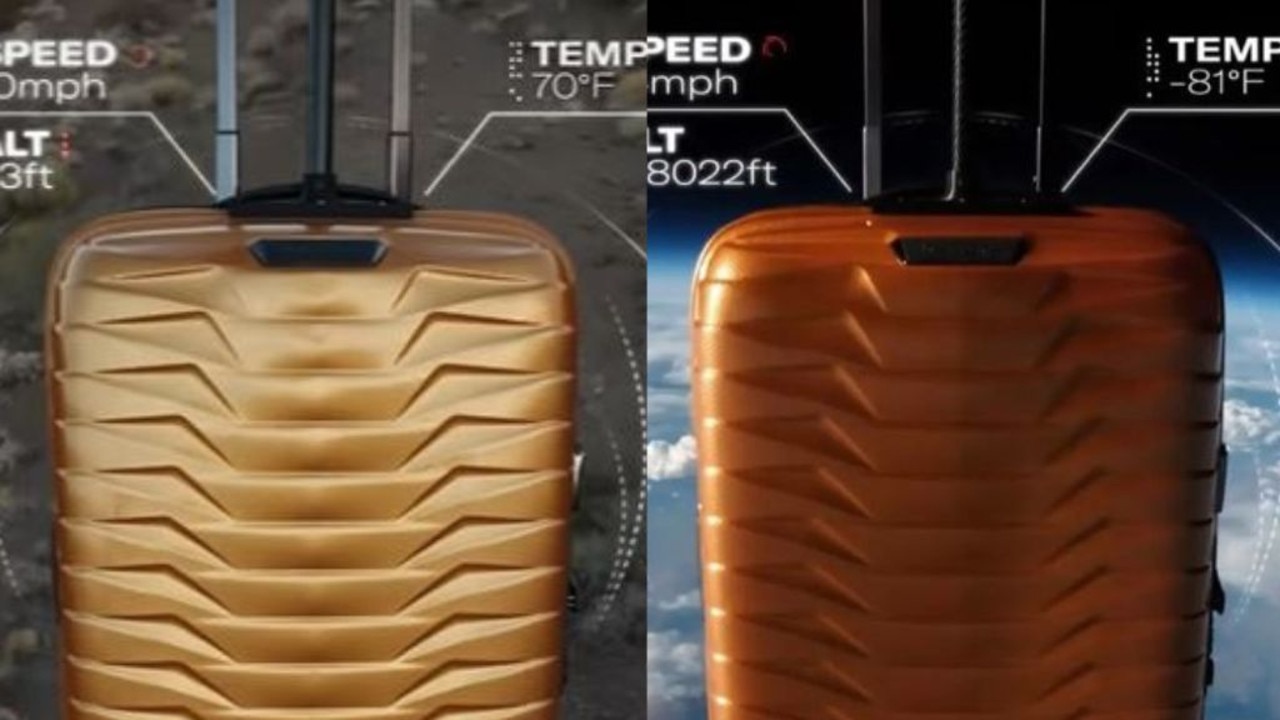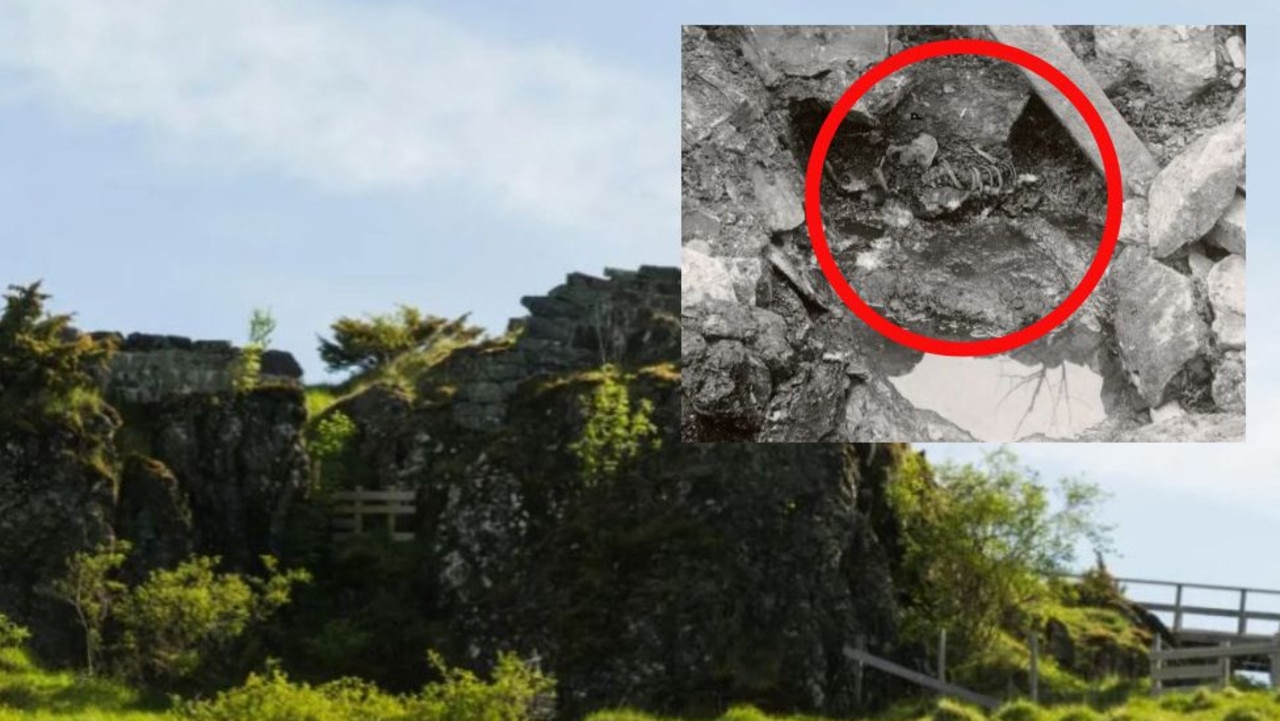Locals find bizarre ‘alien egg pods’ submerged in popular lake
It looks like something out of a sci-fi movie, but these creepy “alien-like” sacks found at a popular lake are set to soar at this destination.
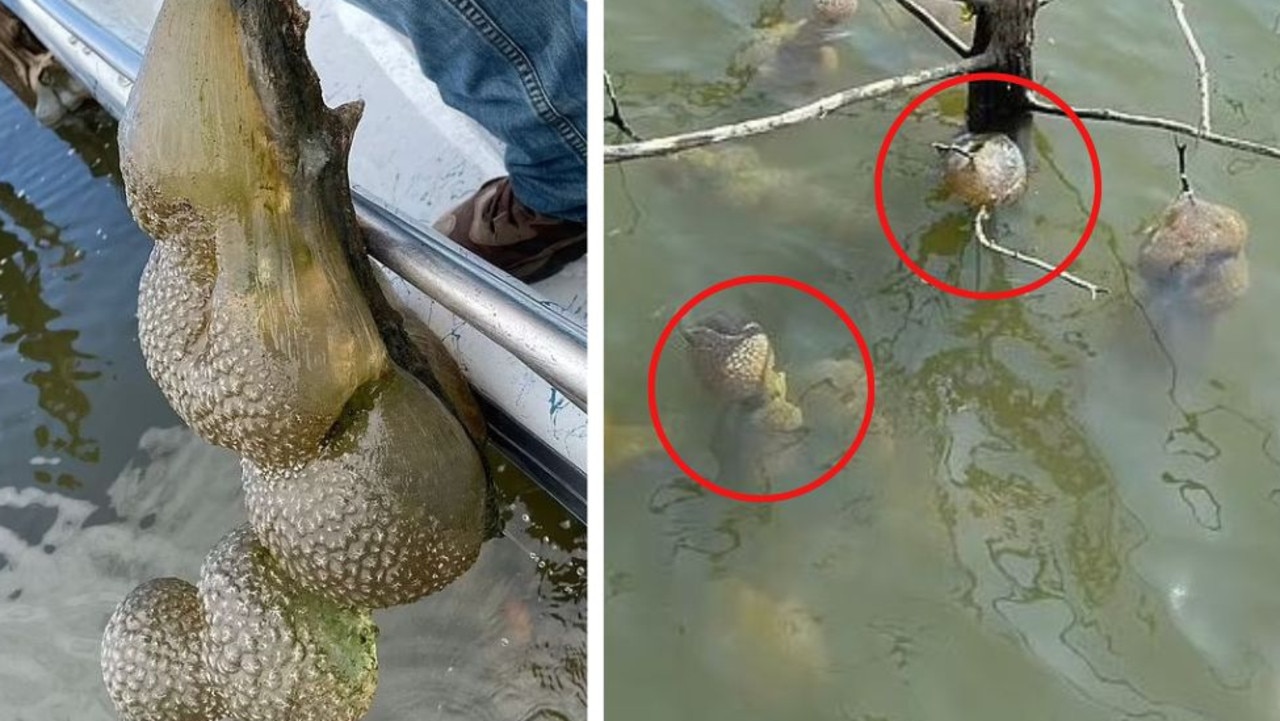
It looks like something straight out of a sci-fi film, but experts say these ‘alien-like’ sacks pulled from a popular US lake will become more and more common this summer.
Posted on social media by the Oklahoma Department of Wildlife Conservation, the images show large sacks filled with what looks like thousands of small jelly balls while hanging from some trees into the murky water below.
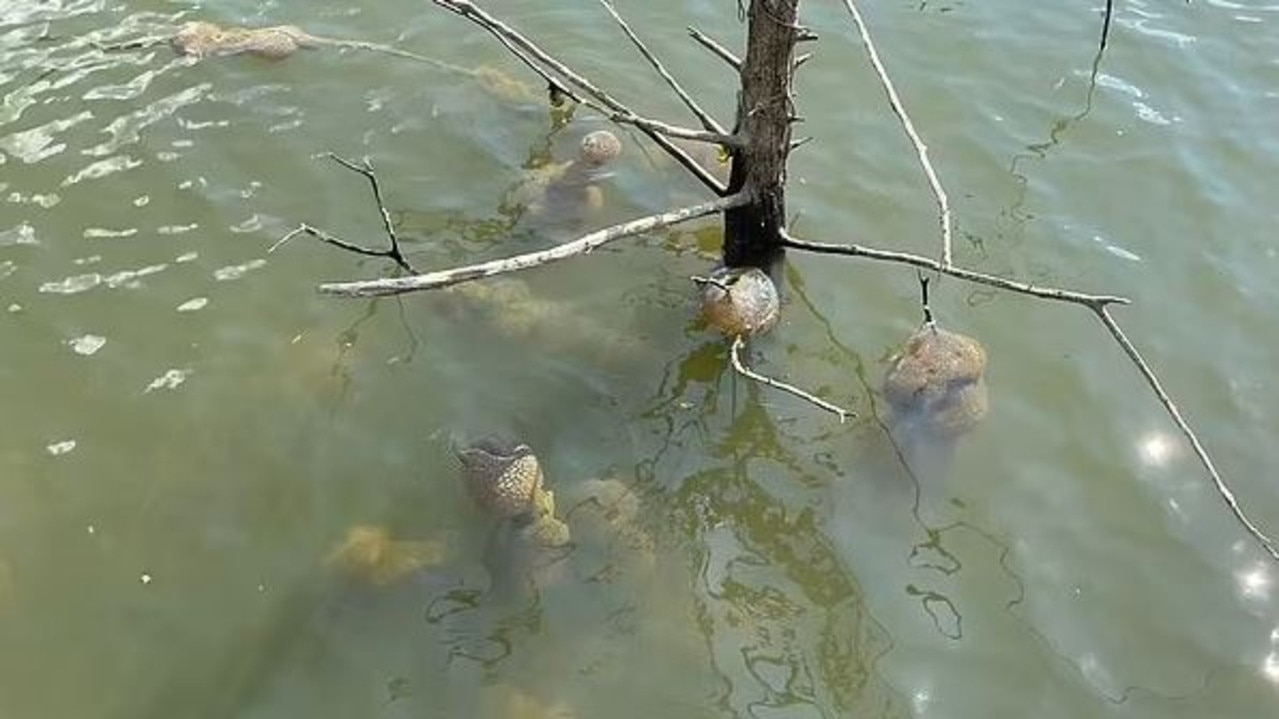
The conservation department explained the alien-like objects that have been spotted at McGee Creek Reservoir in Oklahoma are not dangerous at all, and definitely not from outer space.
“These are Bryozoans, and they’ll likely show up in large numbers this summer,” the post explained.
“Don’t be alarmed these microorganisms are native and are of no danger to you or wildlife. In fact, they are an indicator of good environmental quality and clear water.”
The Conservation department explained that the individual jelly balls called “zooids” will “continually clone themselves until they create a large mass where they filter tiny particles out of the water for food”.
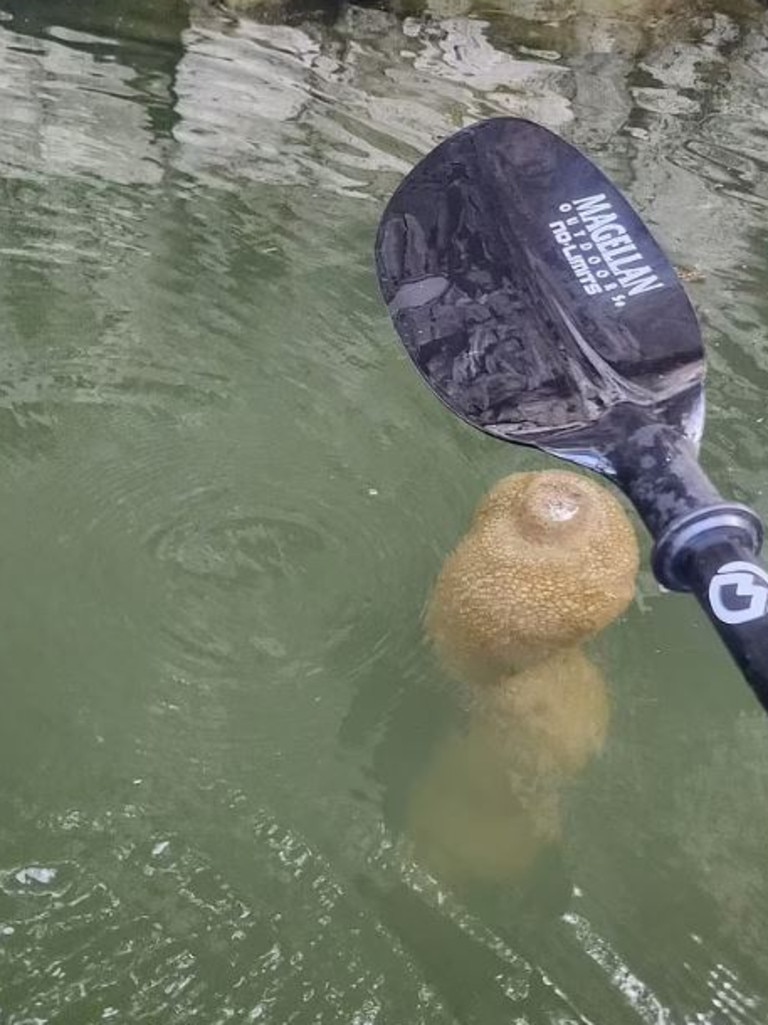
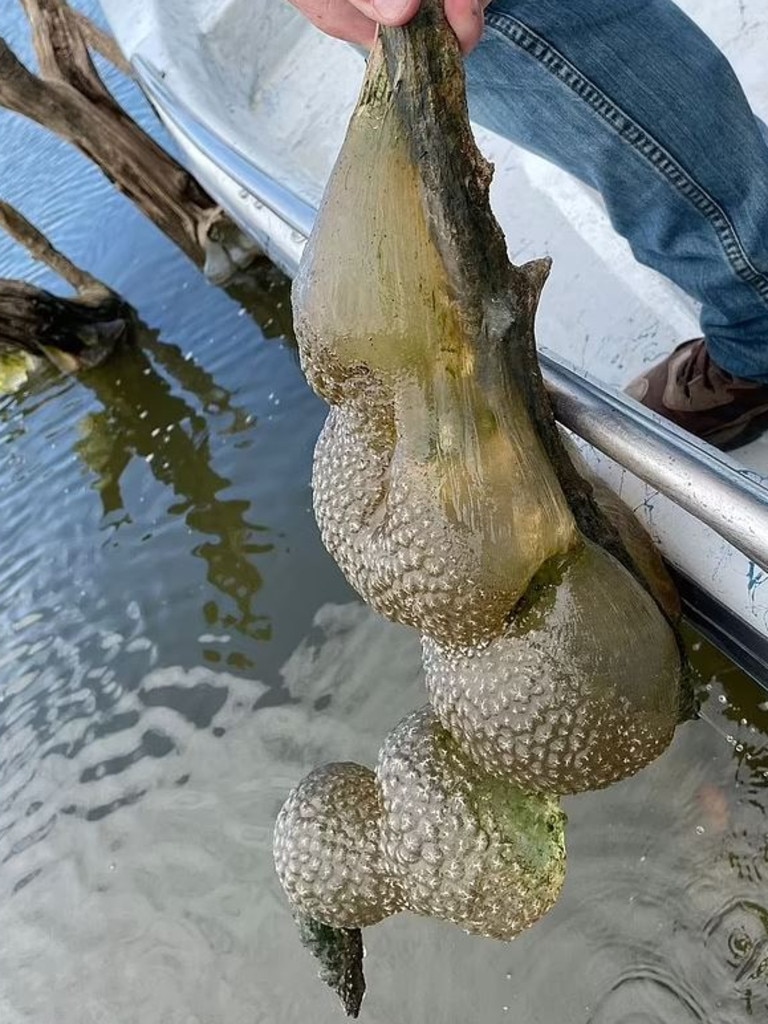
The jelly exterior is a soft shell made of a substance called chitin that can harden when dried up to preserve the organism until rehydrated.
“These animals are an important part of the ecosystem because they help clean the water and serve as prey for mussels, snails, and even small fish,” the post explained, with the creatures themselves tending to feast on phytoplankton and bacteria lurking in water.
“They often spread through water connectivity or even by passing through the intestinal tract of fish or birds.”
But despite the explanation, many were quick to comment on the “spooky” nature of the jelly pods.
“I thought aliens had landed,” one posted.
More Coverage
“Godzilla eggs! I could’ve gone without seeing those.”
“I think these are definitely aliens!”
Global fossil records indicate that ancient bryozoans date back further than dinosaurs, as far back as 470 million years.


